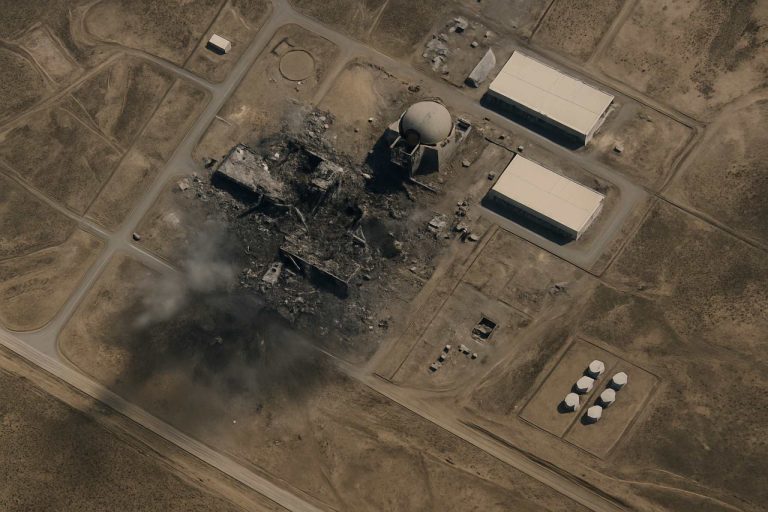
- Pakistan is leveraging its surplus electricity to attract AI data centers and Bitcoin mining farms, aiming to become a regional digital hub.
- The government has allocated 2,000 megawatts for these energy-intensive industries, targeting global firms with competitive electric rates and regulatory clarity.
- The Pakistan Crypto Council and recent legalization of cryptocurrency aim to boost investor confidence and foster blockchain innovation.
- High-speed connectivity is enhanced by the Africa-2 submarine cable, strengthening digital infrastructure and cybersecurity.
- This initiative is expected to generate thousands of jobs in engineering, IT, and data science while supporting over 40 million domestic crypto users.
- Future phases may integrate renewable energy sources, with incentives like tax breaks and customs exemptions to attract international investment.
Crisscrossed by rivers, braced by mountains, and now linked to a lightning-fast global internet backbone, Pakistan is recasting its economic fate. The country’s government, recognizing underexploited energy assets humming idly across the nation, has unveiled a plan as ambitious as it is unconventional: transforming its surplus electricity into a magnet for the world’s most demanding digital operations—AI data centers and Bitcoin mining farms.
Observed closely by finance officials, the first phase marks a watershed moment, allocating an eye-catching 2,000 megawatts exclusively to these energy-hungry industries. The move is part of an audacious initiative to make Pakistan a new axis of digital transformation, pitching itself as an alternative to established regional players such as India and Singapore. There’s a steely-eyed logic: while global demand for computational muscle soars, much of Pakistan’s energy generation capacity sits idle, a hangover from years of over-building and under-consumption.
With the recent official nod to cryptocurrency, Pakistan signals its intent to turn regulatory clarity into advantage. The formation of the Pakistan Crypto Council injects a sense of order into the blockchain rush, offering assurance to international investors wary of legal grey zones. Notably, several heavyweight Bitcoin mining and data infrastructure companies have already begun exploratory tours, tempted by stable and cost-effective electric rates.
This digital leap extends well beyond prospecting for crypto riches. By powering up AI data centers on local soil, Pakistan aims to strengthen digital sovereignty, shore up cybersecurity, and improve the quality of high-tech services for over 40 million domestic cryptocurrency users. The arrival of the massive Africa-2 submarine cable—spanning 45,000 kilometers and connecting 33 nations—further amplifies connectivity, ensuring data streams as swift as they are secure.
The potential ripple effects across the economy are hard to overstate. Engineering, IT, and data science could see an injection of thousands of new jobs. Young Pakistanis, already digitally fluent, may find themselves at the vanguard of a data revolution that once seemed out of reach. If successful, later phases promise an even greener twist—integrating surplus wind, hydro, and solar energy to power future installations, and creating new fintech and innovation hubs.
Government officials emphasize transparency and robust regulation as bedrock principles. The idea is to balance foreign investment and job growth with prudent oversight, preventing the kind of chaos that has hobbled other, less prepared digital economies. The government dangles tempting incentives—tax breaks, customs exemptions, and lightened regulatory loads—hoping to lure global innovators.
The key takeaway: In the digital gold rush for computing power, Pakistan is wagering its future on turning excess energy into economic dynamism. If it can deliver on its promise—forging a regulated, high-tech ecosystem—Pakistan could redefine itself as a new powerhouse at the crossroads of AI, digital assets, and next-generation connectivity. The world’s attention is shifting eastward, and in this unfolding technological drama, Pakistan is poised to seize more than a supporting role.
Paksitan’s Bold Bid: How Turning Excess Power Into Digital Wealth Could Transform the Region
Pakistan’s Digital Pivot Explained
Pakistan’s announcement to dedicate 2,000 megawatts of surplus energy to AI data centers and Bitcoin mining isn’t just innovative—it signals a strategic reinvention of its economy. This project, under close watch by the Pakistan Ministry of Finance, aims to position Pakistan as a major player in the global tech infrastructure race, rivaling powerhouses like India and Singapore.
Additional Facts & Insights Not Fully Explored
1. Potential Economic Impact:
– Job Creation: The data center and crypto-mining industries can generate thousands of high-skill jobs in IT, cybersecurity, blockchain development, and engineering. Pakistan has a young, tech-savvy population—over 60% under the age of 30—who can capitalize on these roles (Source: World Bank).
– Gross Domestic Product (GDP): Studies suggest that by 2028, emerging markets hosting hyperscale data centers could see a 1-2% increase in GDP due to technology transfer and investment flows (Source: International Data Corporation).
– Foreign Direct Investment (FDI): Regulatory clarity and government incentives make Pakistan especially attractive for international investors, particularly as other countries impose stiffer restrictions on cryptocurrency operations.
2. Green Energy Integration:
– Renewable Expansion: Pakistan has substantial untapped hydropower, wind, and solar resources. Integrating these into data center energy consumption could cut carbon emissions and attract global firms seeking greener operations.
– Future-Proofing: With global pressure to green crypto-mining, anticipation is high that Pakistan’s plan will emphasize renewable power sources to maintain competitiveness and environmental compliance.
3. Market Trends & Forecasts:
– Global data center market is projected to grow at a CAGR of 10% from 2023-2028 (Source: ResearchAndMarkets). Pakistan’s entry could capture regional demand previously dominated by Singapore and India.
– Cryptocurrency user growth: There were over 40 million crypto users in Pakistan by 2023, with estimates potentially doubling in the next 3 years, if favorable regulations persist.
4. Security, Regulation & E-E-A-T Compatibility:
– The Pakistan Crypto Council aims to establish Know Your Customer (KYC) protocols, anti-money laundering (AML) measures, and robust cyberdefense standards—key for building trust, according to Google’s Experience, Expertise, Authoritativeness, and Trustworthiness (E-E-A-T) criteria.
– Transparent licensing and oversight are expected to prevent wild-west scenarios observed in less regulated environments.
Most Pressing Reader Questions Answered
Q1. Will energy diversion to data centers cause local power shortages?
The plan allocates only surplus—idle—energy from overbuilt power infrastructure, aiming to avoid domestic supply disruption. However, careful monitoring will be vital, especially during peak demand seasons.
Q2. Are there any risks of illegal activity or “gray market” crypto use?
By regulating exchanges, registration of miners, and adopting KYC/AML protocols (based on FATF recommendations), Pakistan hopes to curb illicit activity and integrate with global finance safely.
Q3. How do Pakistan’s energy costs compare internationally?
Pakistan’s excess generation means its wholesale electricity rates can be lower than many regional peers, making its offer very competitive for energy-intensive operations.
Q4. How secure and fast is the new global connectivity?
The Africa-2 submarine fiber cable, connecting 33 nations, delivers multi-terabit bandwidth. This boosts data center competitiveness, as latency-sensitive cloud and AI services rely on robust international throughput.
Q5. What about environmental concerns from Bitcoin mining?
By planning to use renewable energy for future expansion, Pakistan is poised to counteract criticisms often leveled at crypto mining for its carbon footprint. Expert observers stress ongoing transparency in energy sourcing (Source: Cambridge Centre for Alternative Finance).
How-To Steps & Life Hacks
For Entrepreneurs and Tech Professionals:
1. Monitor regulation updates: Track announcements from the Finance Ministry and Pakistan Crypto Council.
2. Leverage government incentives: Apply for tax breaks or customs exemptions when starting or relocating digital ventures.
3. Upskill for the digital economy: Seek certification in cybersecurity, cloud computing, and blockchain tech via platforms like Coursera or edX.
4. Network with international players: Attend virtual summits and conferences to explore global opportunities and investments.
Real-World Use Case
Fintech Startup Expansion:
Pakistani fintech startups can now set up cloud-based platforms with lower latency and data residency compliance. This attracts international clients seeking both affordability and reliability.
Reviews & Comparisons
Strengths vs. Regional Peers:
– Pros: Abundant surplus power, incentivized investment, growing user base, central location, improved regulation.
– Cons: Legacy grid inefficiencies, dependency on future renewable integration, potential political risk.
Singapore vs. Pakistan vs. India (Data Center Investment):
– Singapore faces land and power constraints, imposing moratoriums on new data centers. India’s costs are rising due to energy shortages. Pakistan’s surplus and incentives make it a rising alternative, if execution is managed well.
Controversies & Limitations
– Political Stability: Regulatory uncertainty remains a risk, especially with changing governments.
– Grid Reliability: Localized outages or transmission challenges could impact large installations.
– Market Volatility: Crypto market swings may affect long-term viability for mining investments.
Pricing Snapshot (As Of 2024)
– Electricity rates: Pakistan’s surplus power can be as low as $0.08–$0.10/kWh (varies by region and contract).
– Data center hosting: Estimated at 10-15% lower than comparable facilities in India or Singapore due to cheaper land and power.
Security & Sustainability
– Emphasizing ISO 27001 data security standards.
– Audits and third-party monitoring to ensure compliance.
– Ongoing dialogue with environmental NGOs for green compliance.
Actionable Recommendations & Quick Tips
– Invest early: Tech entrepreneurs and crypto miners should leverage first-mover advantages and secure favorable contracts.
– Focus on upskilling: The forthcoming data boom makes AI, blockchain, and cybersecurity skills especially lucrative.
– Stay informed: Subscribe to government and industry bulletins for regulation and policy updates.
Expert Outlook
According to the Global Blockchain Business Council, the move could “position Pakistan as South Asia’s digital dark horse” provided regulatory follow-through and sustainable energy sourcing are upheld.
Learn More
For the latest official updates and policies, visit the Pakistan Ministry of Finance.
—
Keywords: Pakistan data centers, AI, bitcoin mining, crypto regulation, energy surplus, fintech, digital jobs, renewable energy, Africa-2 cable, economic transformation
Final Thought:
Pakistan’s experiment could become a compelling case study in turning infrastructure overcapacity into tech-driven economic growth. For entrepreneurs, investors, and IT professionals, the window of opportunity is wide open—now is the moment to explore, invest, and upskill.



